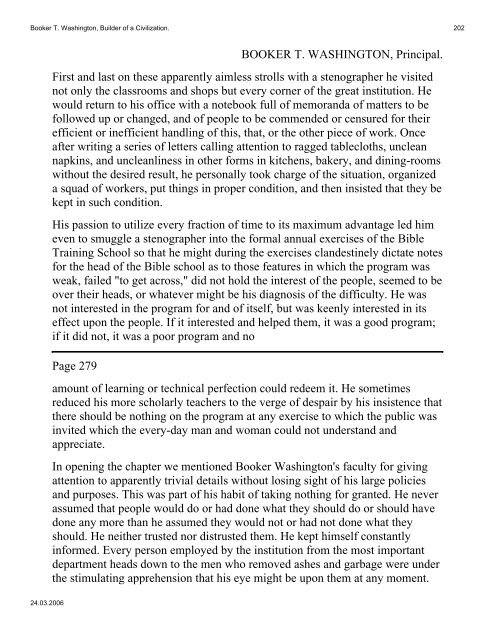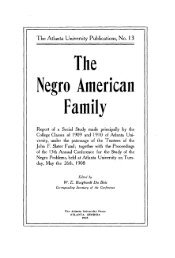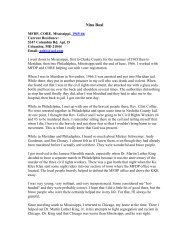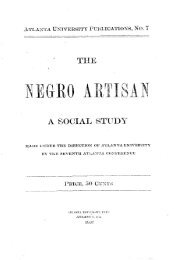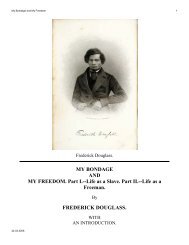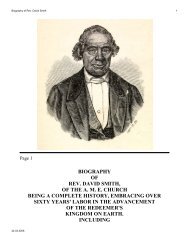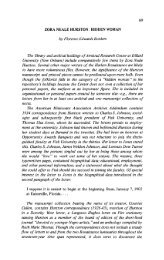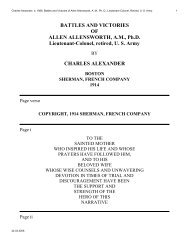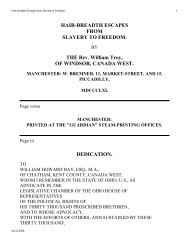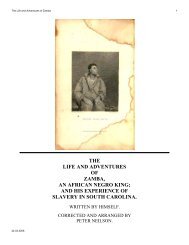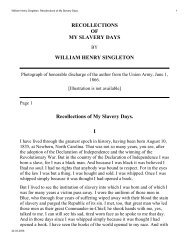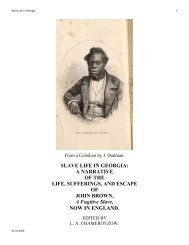Booker T. Washington, Builder o - African American History
Booker T. Washington, Builder o - African American History
Booker T. Washington, Builder o - African American History
Create successful ePaper yourself
Turn your PDF publications into a flip-book with our unique Google optimized e-Paper software.
<strong>Booker</strong> T. <strong>Washington</strong>, <strong>Builder</strong> of a Civilization. 202<br />
BOOKER T. WASHINGTON, Principal.<br />
First and last on these apparently aimless strolls with a stenographer he visited<br />
not only the classrooms and shops but every corner of the great institution. He<br />
would return to his office with a notebook full of memoranda of matters to be<br />
followed up or changed, and of people to be commended or censured for their<br />
efficient or inefficient handling of this, that, or the other piece of work. Once<br />
after writing a series of letters calling attention to ragged tablecloths, unclean<br />
napkins, and uncleanliness in other forms in kitchens, bakery, and dining-rooms<br />
without the desired result, he personally took charge of the situation, organized<br />
a squad of workers, put things in proper condition, and then insisted that they be<br />
kept in such condition.<br />
His passion to utilize every fraction of time to its maximum advantage led him<br />
even to smuggle a stenographer into the formal annual exercises of the Bible<br />
Training School so that he might during the exercises clandestinely dictate notes<br />
for the head of the Bible school as to those features in which the program was<br />
weak, failed "to get across," did not hold the interest of the people, seemed to be<br />
over their heads, or whatever might be his diagnosis of the difficulty. He was<br />
not interested in the program for and of itself, but was keenly interested in its<br />
effect upon the people. If it interested and helped them, it was a good program;<br />
if it did not, it was a poor program and no<br />
Page 279<br />
amount of learning or technical perfection could redeem it. He sometimes<br />
reduced his more scholarly teachers to the verge of despair by his insistence that<br />
there should be nothing on the program at any exercise to which the public was<br />
invited which the every-day man and woman could not understand and<br />
appreciate.<br />
In opening the chapter we mentioned <strong>Booker</strong> <strong>Washington</strong>'s faculty for giving<br />
attention to apparently trivial details without losing sight of his large policies<br />
and purposes. This was part of his habit of taking nothing for granted. He never<br />
assumed that people would do or had done what they should do or should have<br />
done any more than he assumed they would not or had not done what they<br />
should. He neither trusted nor distrusted them. He kept himself constantly<br />
informed. Every person employed by the institution from the most important<br />
department heads down to the men who removed ashes and garbage were under<br />
the stimulating apprehension that his eye might be upon them at any moment.<br />
24.03.2006


